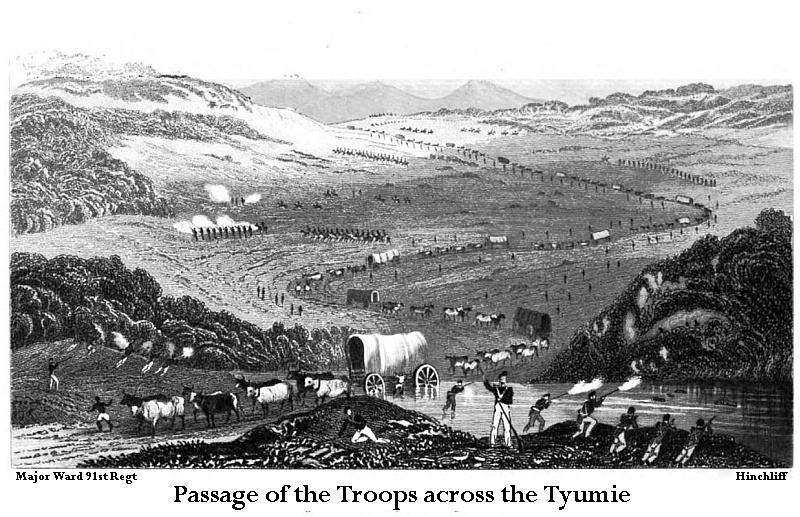Harriet Ward
"The Cape and the Kaffirs"
"A Diary of Five Years' Residence in Kaffirland"
Dedication.
My dear Colonel Somerset,
My work on Kaffirland, which I had the honour to dedicate to you in 1848, having gone through two editions, I should consider this abstract narrative incomplete without your name. Permit me, then, to inscribe this little book to you, in testimony of that admiration for your public services which all must feel who have benefited by them, as well as in remembrance of much kindness to
Your obliged and faithful friend,
Harriet Ward.
Dover, March, 1851.
Note. Since this was written Colonel Somerset has been awarded the local rank of Major-General by Sir Harry Smith.
Prologue.
Much of the following work has already appeared, and has been favourably received by the public under the title of “Five Years in Kaffirland.” Its price, however, having necessarily limited its circulation, I have been induced to remodel it, and I now bring it forward in its present shape, with some little alteration and abridgment, and with the addition of much that appeared to me likely to render it serviceable to such of my countrymen as may be meditating an attempt to improve their circumstances by emigration, particularly if their views of where best to go are either undecided, or point in the direction of Southern Africa.

I have passed five eventful years in that country, and in what I have said of it I speak from personal experience, without any prejudices to gratify, or any party to serve, but actuated, I trust, by a sincere desire to be of service.
It is true that a cloud has again gathered over the land, but I feel justified in venturing the opinion that, under Providence, it will be dispersed by the judgment and energy of Sir Harry Smith.
The tide of emigration having lately set strongly in the direction of Natal, I have thought it necessary to give some account of that district, but as I have no personal knowledge of it, I have confined myself to the information supplied by published official reports.
Part 1, Chapter I.
British Possessions in Southern Africa.
The British possessions in Southern Africa, at the present day, consist of what has long been known as the Cape Colony, or the country extending from the extreme southern point of the continent to the 29th degree of south latitude; of a district adjoining on the east, called British Kaffraria; and a detached territory, called Natal, lying far removed from the rest, on the eastern coast, and bordering on the country called Delagoa, of which the possession is claimed by the Portuguese. In so large an extent of country there is, of course, much diversity of soil and general appearance, but it is unquestionable that the parts best adapted, on the whole, to European settlement, are the eastern districts, including Natal. The extent and population of each of these divisions may be roughly stated at—Cape Colony and British Kaffraria, 150,000 square miles, and 200,000 inhabitants; Natal, 18,000 square miles, and 20,000 inhabitants. In the Cape Colony the white and the coloured population are of about equal amount, (see Note 1), but in British Kaffraria and Natal the number of white inhabitants is as yet but small. Among the white inhabitants, those of Dutch origin greatly predominate, as